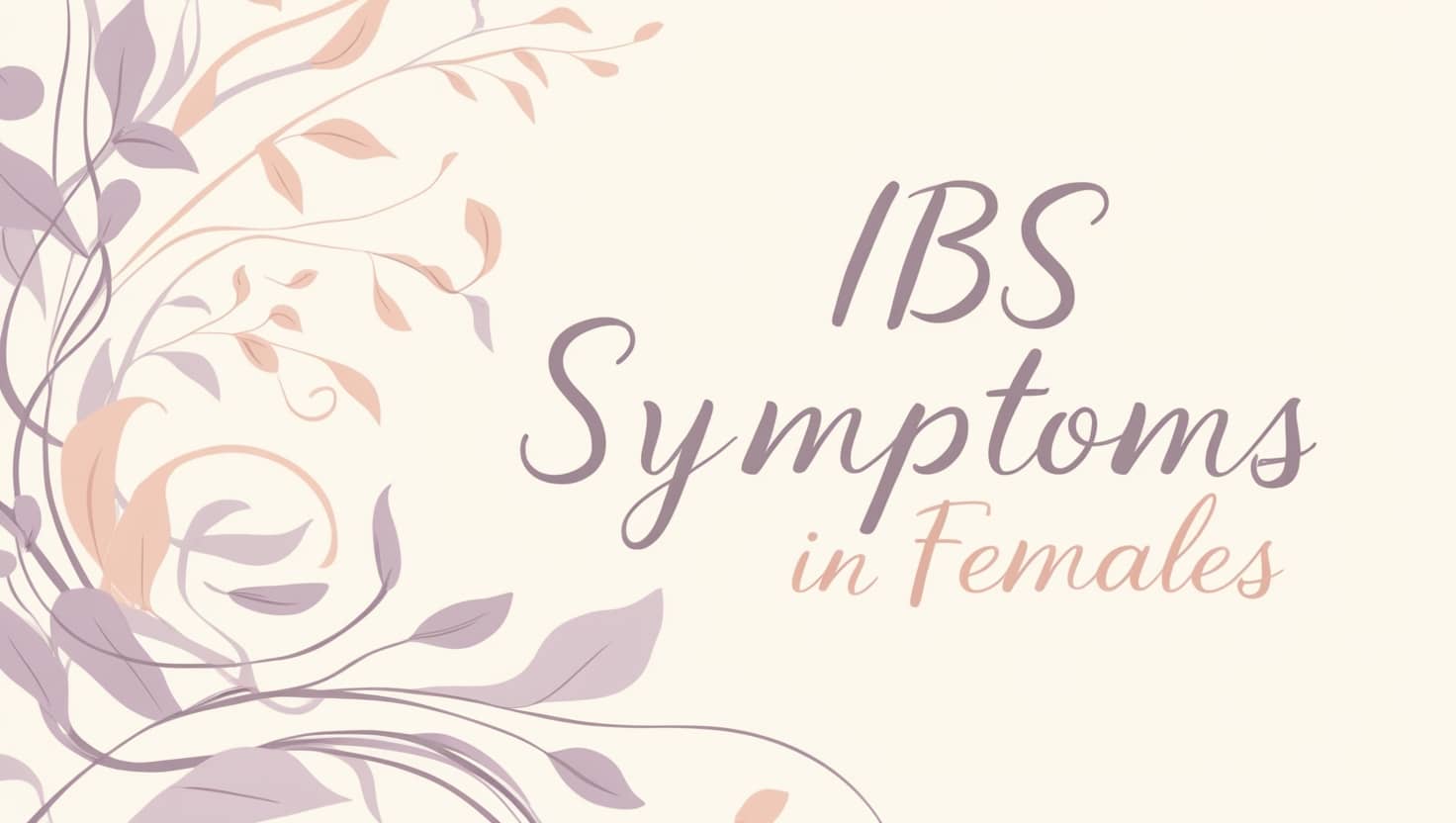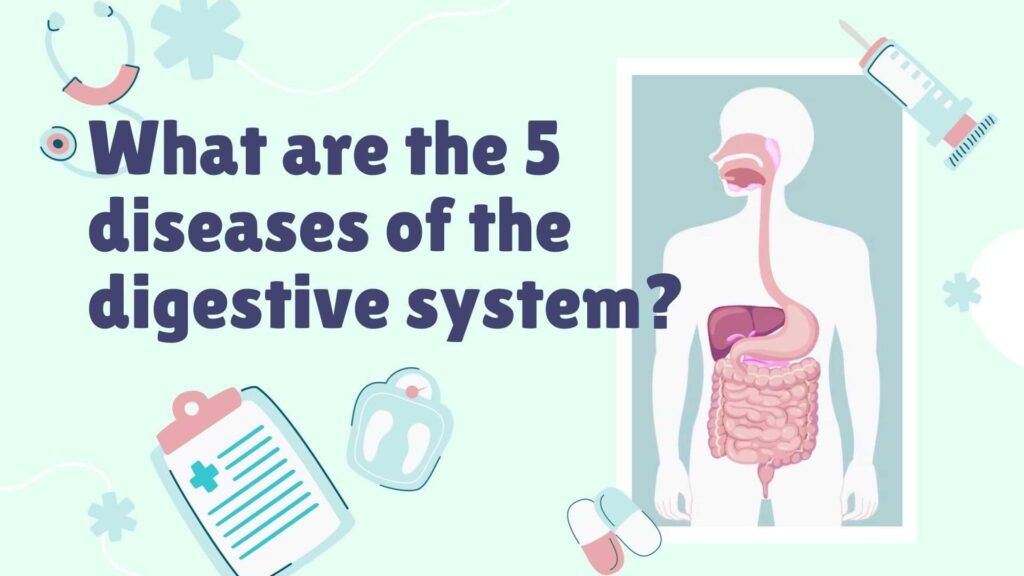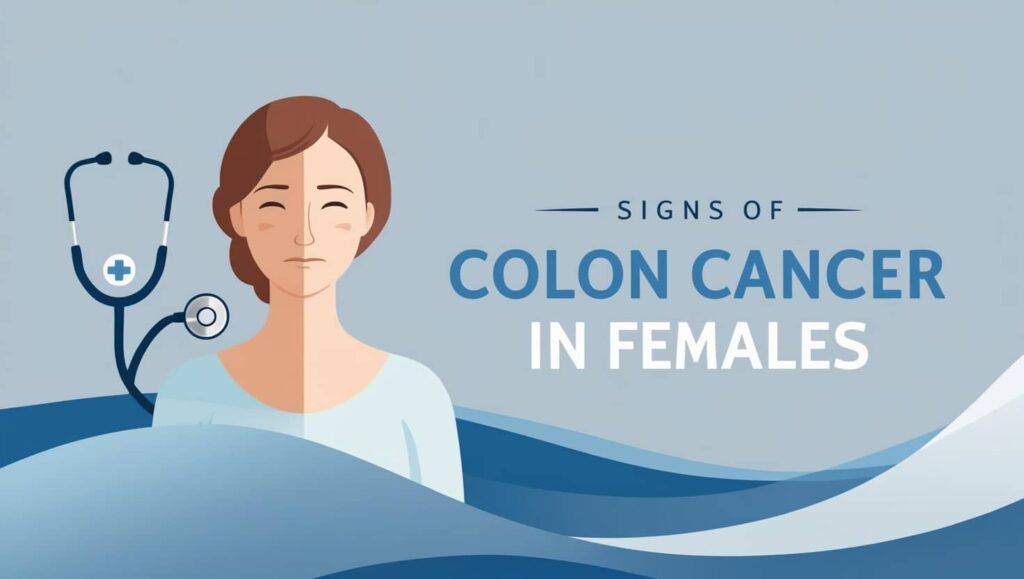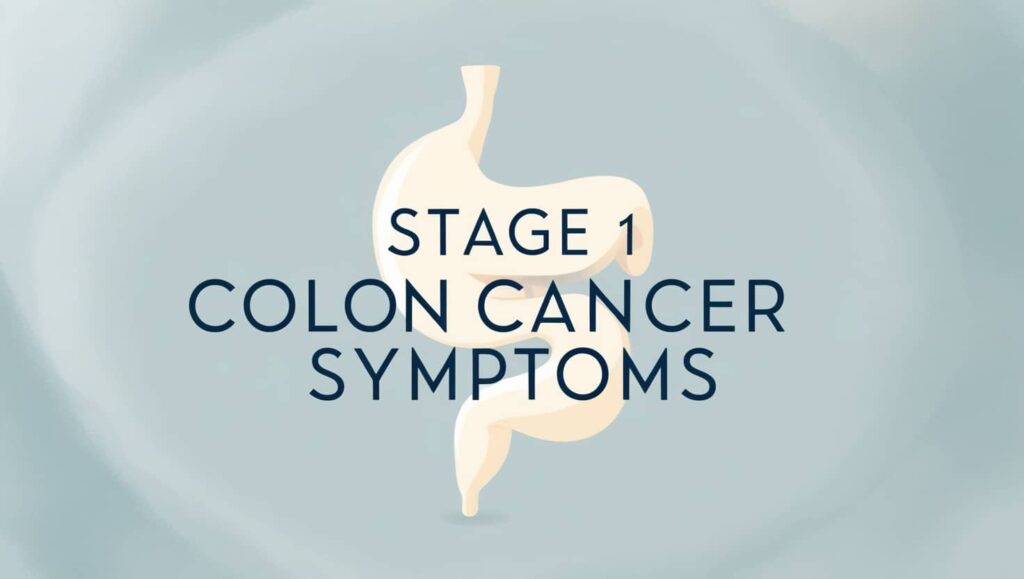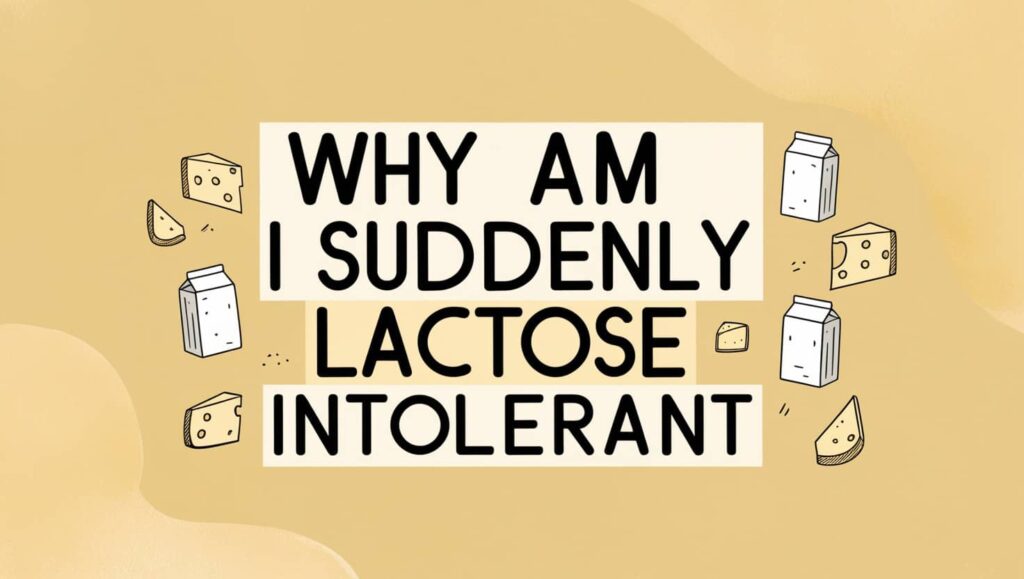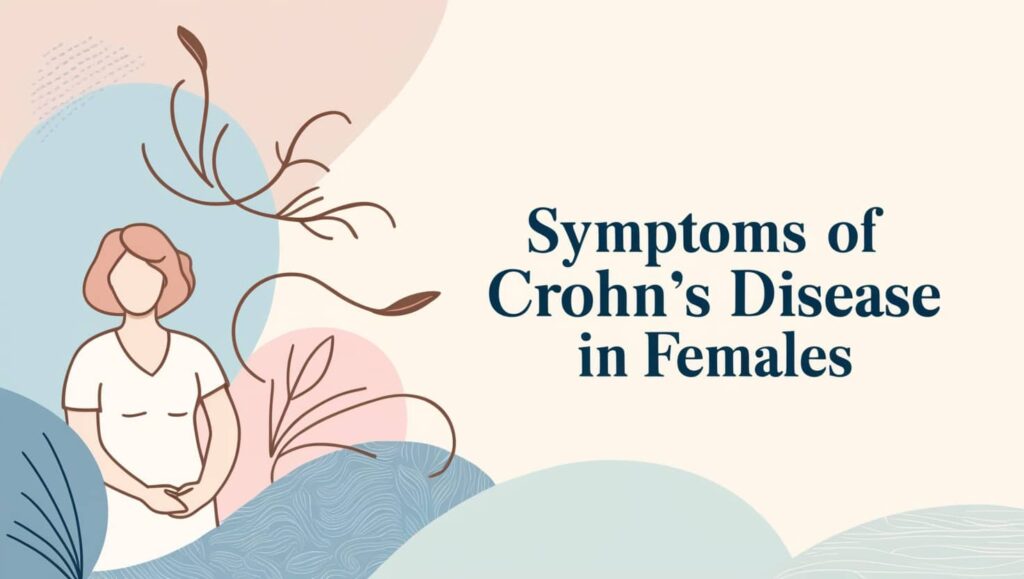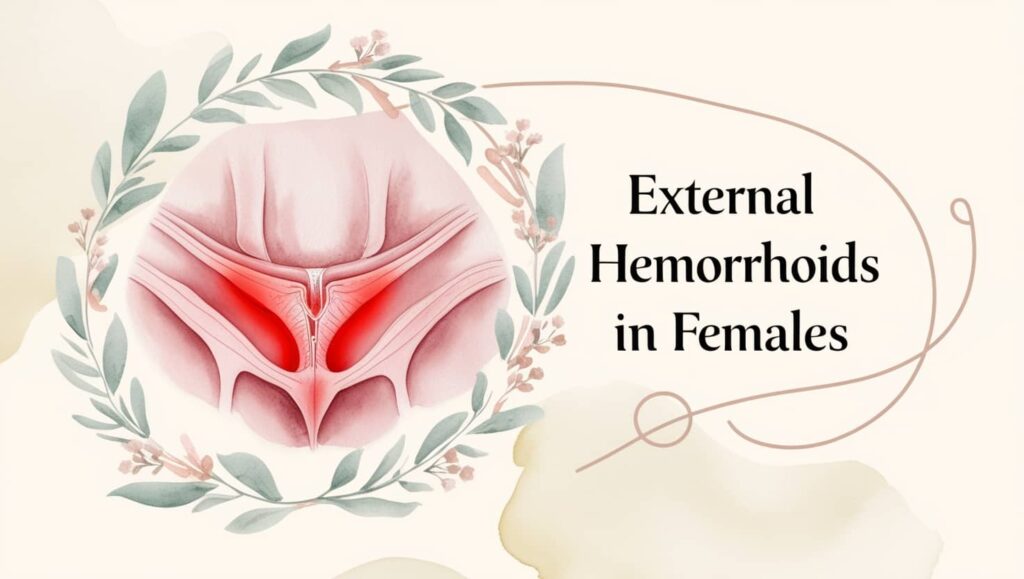Do you know that Irritable bowel syndrome is a lifelong issue that affects the digestive system? IBS symptoms in females may appear due to biological factors such as sex hormones or the presence of certain medical conditions.
This guide explains why women are more susceptible to IBS symptoms, certain medications taken without medical supervision, and dietary treatment for management of this condition. Explore further.
Symptoms of Irritable Bowel Syndrome in Females
Symptoms of IBS are a group of signs that contribute to the changes in intestine movements that may range between diarrhea or constipation or a mix between them, in addition to other symptoms including:
- Aches or cramps in the stomach may become worse after a meal.
- Bloating as you feel full.
- Fatigue.
- Presence of mucus in stool.
- Abdominal pain.
Notably, about 8.8% of the global world is suffering from irritable bowel syndrome.
Although the causes of IBS are not known, there are risk factors involving:
Sex where females are more likely than men, according to studies of the National Library of Medicine, 12% of women are more susceptible to IBS than 8.7% of men.
- Family history of IBS.
- Anxiety.
- Depression.
- Changes in bacteria found in the intestine.
- Sensitivity to certain foods.
In addition, there are three types of IBS classified as follows:
- IBS characteristics with constipation (IBS-C).
- Diarrhea-predominant IBS (IBS-D).
- (IBS-M) is associated with constipation alternating with diarrhea.
Accordingly, IBS symptoms in females become worse in the following:
IBS Symptoms in Females and Menstrual Cycle
This evidence appears when studying 134 women aged between 26 and 30; the results reveal the following:
- Most patients suffering from IBS are mixed.
- About 27.27% of cases have constipation during menstruation.
- Around 15% of females suffer from diarrhea.
According to these results, researchers illustrated that the IBS symptoms in females become worse due to the effect of secretion of progesterone and estrogen sex hormones on contraction of smooth muscle of the gut, leading to disturbance in the GI tract and abdominal pain.
Also, prostaglandins, which are natural substances that are secreted every month during the menstrual cycle, have bad effects on the bowel that lead to more stool or even diarrhea.
Pelvic Organ Prolapse
A study done in 2010 found that women suffer from pelvic organ prolapse and urinary incontinence, which means leaking urine due to an inability to control the bladder.
The appearance of this symptom explained that women with IBS may have constipation that causes weakness of the pelvic floor and prolapse.
Sexual Dysfunction
Among IBS symptoms in females are disturbance in sexual desire and painful intercourses because of visceral hypersensitivity, where the bowel is full of fluid or gas that makes them feel uncomfortable in organs, including the vagina.
Chronic Headache
Accordingly, the study of the National Library of Medicine in 2017 found that there is a relationship between chronic headache as migraine and females with a history of anxiety.
The study indicated that due to the gut- brain axis that connects the gastrointestinal system and central nervous system.
Serotonin is one of the neurotransmitters in the gut that may be affected by estrogen hormones in females and also bacterial changes in the bowel that may be the reason for migraine.
Bloating
Bloating is one of the more anxiety-inducing symptoms of IBS, where the intestine is full of gases due to changes in beneficial bacteria living in the bowel.
Studies refer to bloating in females with IBS during the menstrual cycle.
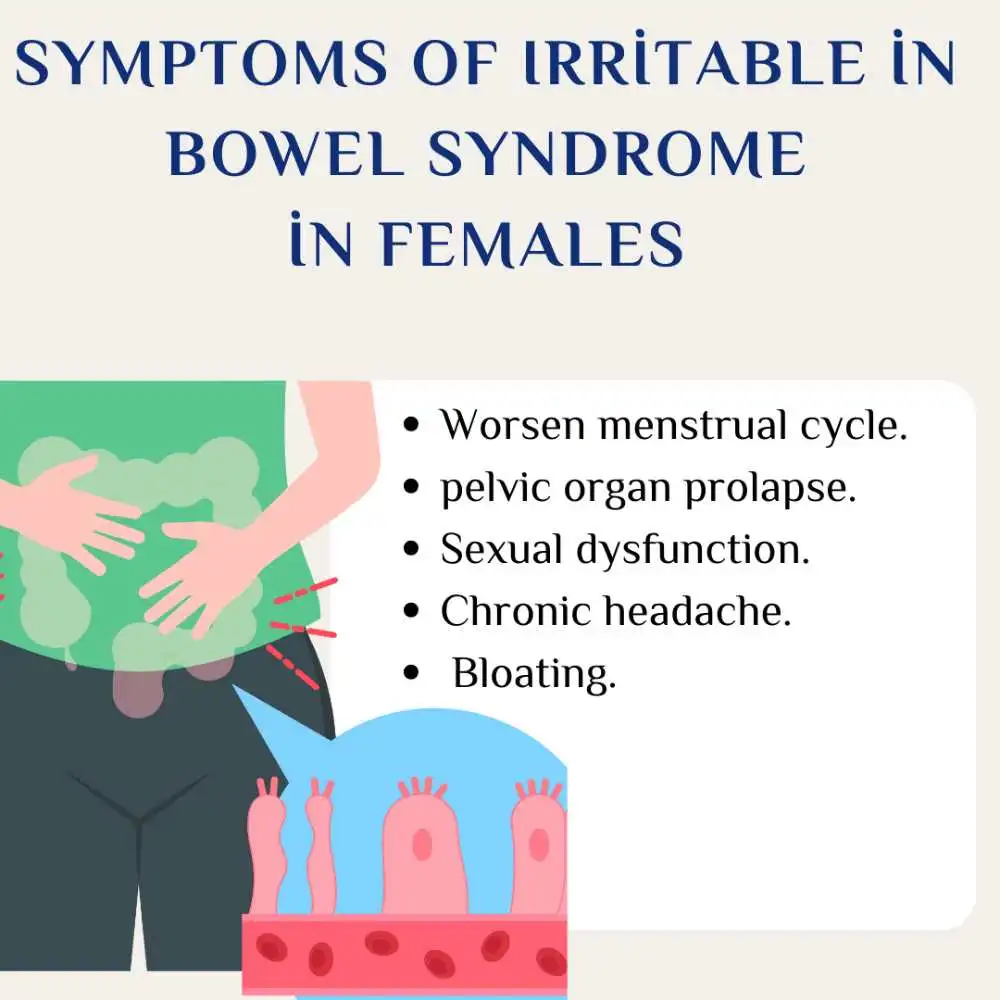
Symptoms of IBS Attack
Irritable bowel syndrome symptoms differ from one person to another and may persist for hours or may be for days, which include:
- Cramps.
- Abdominal pain.
- Flatulence.
- Backache.
- Watery poo and sudden constipation.
- Vomiting.
- Difficult breath.
Flare-ups of symptoms of IBS may occur without any reasons, but they are triggered by some factors such as:
- Eating spicy food.
- Drinking coffee or alcohol.
- Long- or short-term stress.
- Gastrointestinal tract infection where studies indicated that the post-infection with parasites, such as Giardia lamblia infection, increases IBS symptoms in females. Psychological disorders like depression, anxiety, and post-traumatic stress disorder.
- Abnormal growth of bacteria in bowel.
- Hormones during the menstrual cycle, because they have receptors on the intestinal tract, cause worsening symptoms of lbs.
IBS OTC Medication
To assist treat IBS symptoms in females, over-the-counter medications can be taken as follows:
- Treatment for IBS with constipation these medications aim to enhance intestinal movement and soften stools. Laxatives, linaclotide, and plecanatide are possible options.
- Medication for Abdominal Pain like Antispasmodics can help minimize muscular spasms and decrease abdominal discomfort.
- Treatment for diarrhea such as loperamide and alosetron (for women only) may help control diarrhea. Additionally, rifaximin, an antibiotic, is used to limit the growth of bacteria that contribute to diarrhea.
- Probiotics are live microorganisms similar to bacteria naturally found in the intestine. They are recommended for balancing the gut bacteria as well as intestinal health.
Read Also: Pain in Lower Left Abdomen in Females
IBS Treatment Diet
The healthcare providers may recommend changing the lifestyle of your diet to manage the symptoms of IBS including:
Eat Food Rich in Fiber
that may be soluble fibers found in beans,or fruits and insoluble fiber as vegetables
Whatever the type of fiber it helps to prevent constipation by making stool more soft and easy to pass.
In addition studies found that soluble fiber is more effective at managing the IBS symptoms in females than insoluble.
Also, fibers must add to deit slowly, because much fiber can make bloating and gas.
Low Diet of Carbohydrates
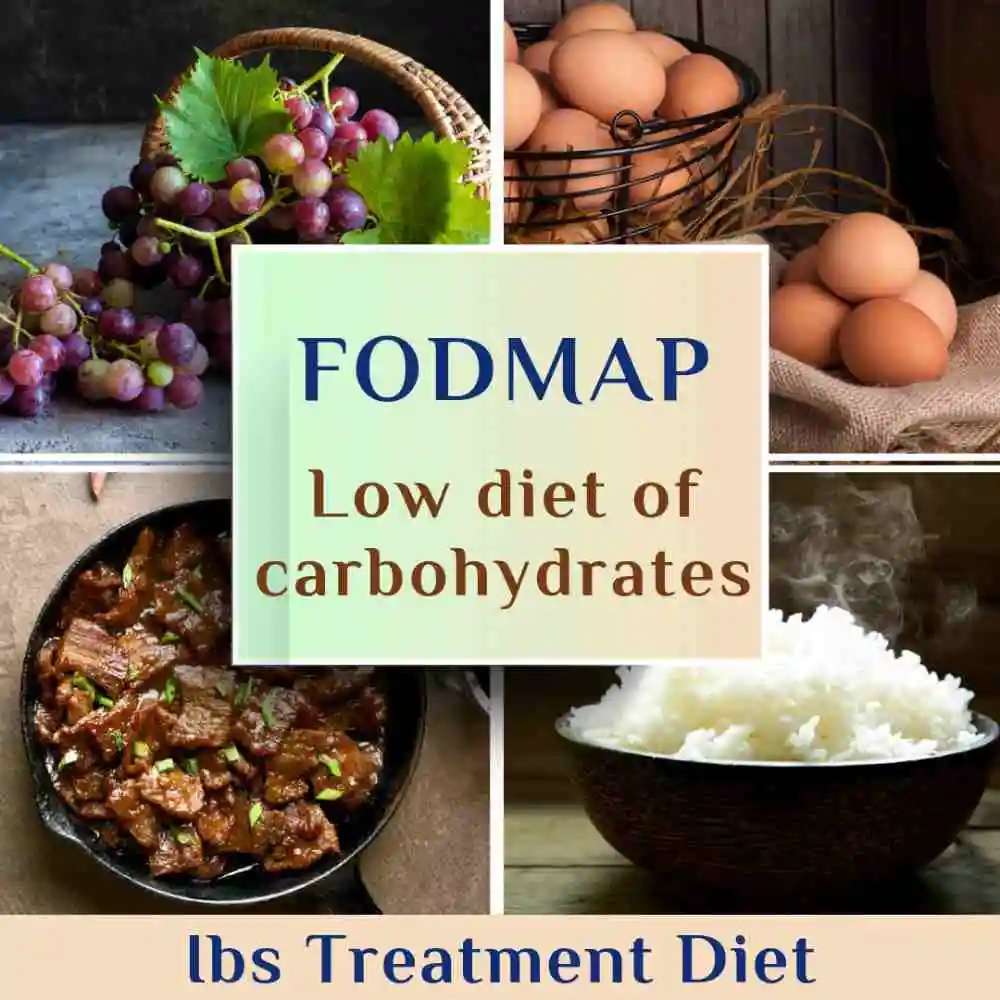
Avoid carbohydrate-rich meals for a while because they can be difficult to digest.
Your doctor recommended a low-carbohydrate diet, often known as the Low FODMAP diet.
The term “FODMAP” is known as particular carbs and sugars that are poorly digested and absorbed in the intestines.
FODMAP refers to fermentable oligosaccharides, disaccharides, monosaccharides, and polyols.
These types of carbohydrates are frequently responsible for causing IBS symptoms.
As a result, avoiding foods high in FODMAPs may help manage these symptoms.
Examples of high-FODMAP foods should avoid are:
- Yogurt.
- Cereals.
- Bread.
- asparagus.
- Onion
- Garlic.
- Apples.
- Peaches.
- Cherries.
- Sweaterners.
- Gum.
Your meals should include low-FODMAP foods as:
- Meat.
- Eggs.
- Potatoes
- Eggplants.
- grapes.
- Rice.
- Oats.
- Oranges.
- Cheddar.
Probiotic Rich Food
Eating fermented foods high in live microorganisms, such as beneficial bacteria, helps to maintain a healthy balance in the small intestine.
Furthermore, these meals contribute significantly to immune system wellness.
Probiotic-rich fermented foods include the following:
- Kefir is a form of fermented milk.
- Pickles
- Buttermilk, the liquid leftover after making butter.
- Soft cheeses.
- Apple cider vinegar.
Summary
Symptoms of Irritable bowel syndrome are a group of signs affecting the intestine, ranging from diarrhea to constipation or a mix of both.
It affects 8.8% of the global population and is influenced by factors such as sex, family history, bacterial changes in the intestine, and sensitivity to certain foods.
Symptoms become worse in females during the menstrual cycle as bloating.
Pelvic organ prolapse and sexual dysfunction are also common symptoms.
IBS symptoms in females can be managed with over-the-counter medications like laxatives, antispasmodics, alosetron, and probiotics are recommended to balance gut bacteria and intestinal health.
To manage symptoms, healthcare providers may recommend a Low FODMAP diet, foods rich in fiber.
Consuming probiotic foods rich in live microorganisms helps maintain a healthy balance in the small intestine and contributes significantly to immune system wellness.
Read Also: Pancreatitis: When to Worry?
References
- Kim, Y. S., & Kim, N. (2018, October 1). Sex-gender differences in irritable bowel syndrome. Journal of neurogastroenterology and motility. From PubMed
- Kim, Y. S., & Kim, N. (2018, October 1). Sex-gender differences in irritable bowel syndrome. Journal of neurogastroenterology and motility. From NIH
- NHS. (n.d.). NHS choices. From NHS
- Oka P;Parr H;Barberio B;Black CJ;Savarino EV;Ford AC; (n.d.). Global prevalence of irritable bowel syndrome according to rome III or IV criteria: A systematic review and meta-analysis. The lancet. Gastroenterology & hepatology. From PubMed
- U.S. Department of Health and Human Services. (n.d.-a). Symptoms & causes of irritable bowel syndrome – NIDDK. National Institute of Diabetes and Digestive and Kidney Diseases. From NIH
- Pati, G. K., Kar, C., Narayan, J., Uthansingh, K., Behera, M., Sahu, M. K., Mishra, D., & Singh, A. (2021, January 14). Irritable bowel syndrome and the menstrual cycle. Cureus. From PubMed
- Georgescu, D., Reisz, D., Gurban, C. V., Georgescu, L. A., Ionita, I., Ancusa, O. E., & Lighezan, D. (2017, December 20). Migraine in young females with irritable bowel syndrome: Still a challenge. Neuropsychiatric disease and treatment. From NIH
- U.S. Department of Health and Human Services. (n.d.-a). Eating, diet, & Nutrition for Irritable Bowel Syndrome – NIDDK. National Institute of Diabetes and Digestive and Kidney Diseases. From NIH
- Thabane, M., & Marshall, J. K. (2009, August 7). Post-infectious irritable bowel syndrome. World journal of gastroenterology. From PubMed
- Rangan, V., Ballou, S., Shin, A., Camilleri, M., Beth Israel Deaconess Medical Center GI Motility Working Group, & Lembo, A. (2020, February). Use of treatments for irritable bowel syndrome and patient satisfaction based on the IBS in America survey. Gastroenterology. From NIH
- U.S. Department of Health and Human Services. (n.d.-d). Treatment for irritable bowel syndrome – NIDDK. National Institute of Diabetes and Digestive and Kidney Diseases. From NIH

